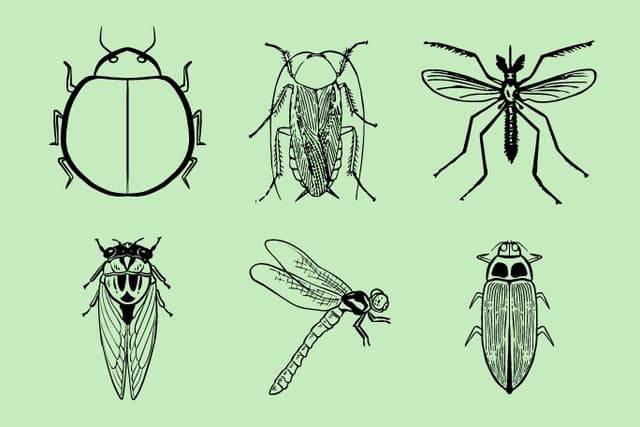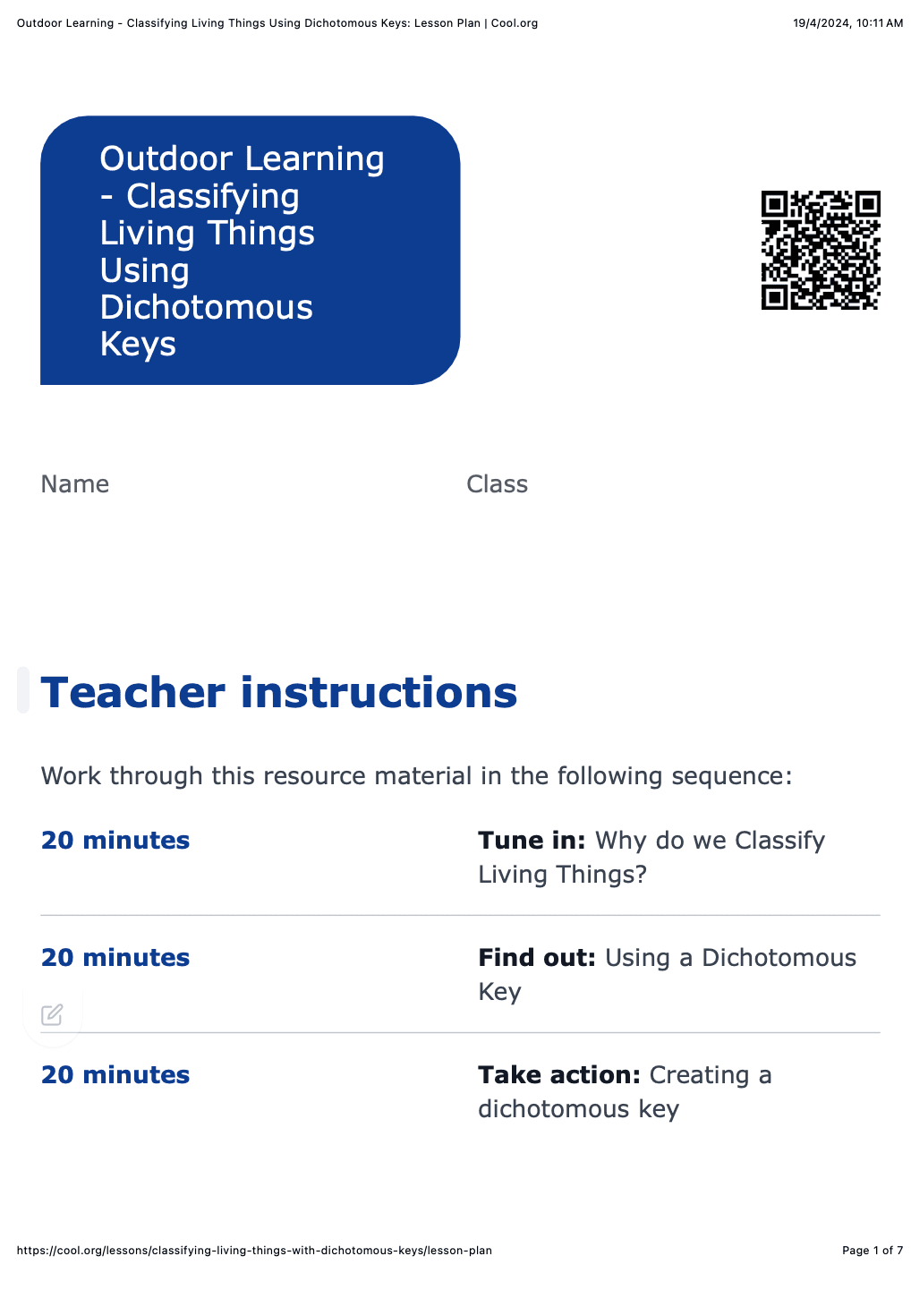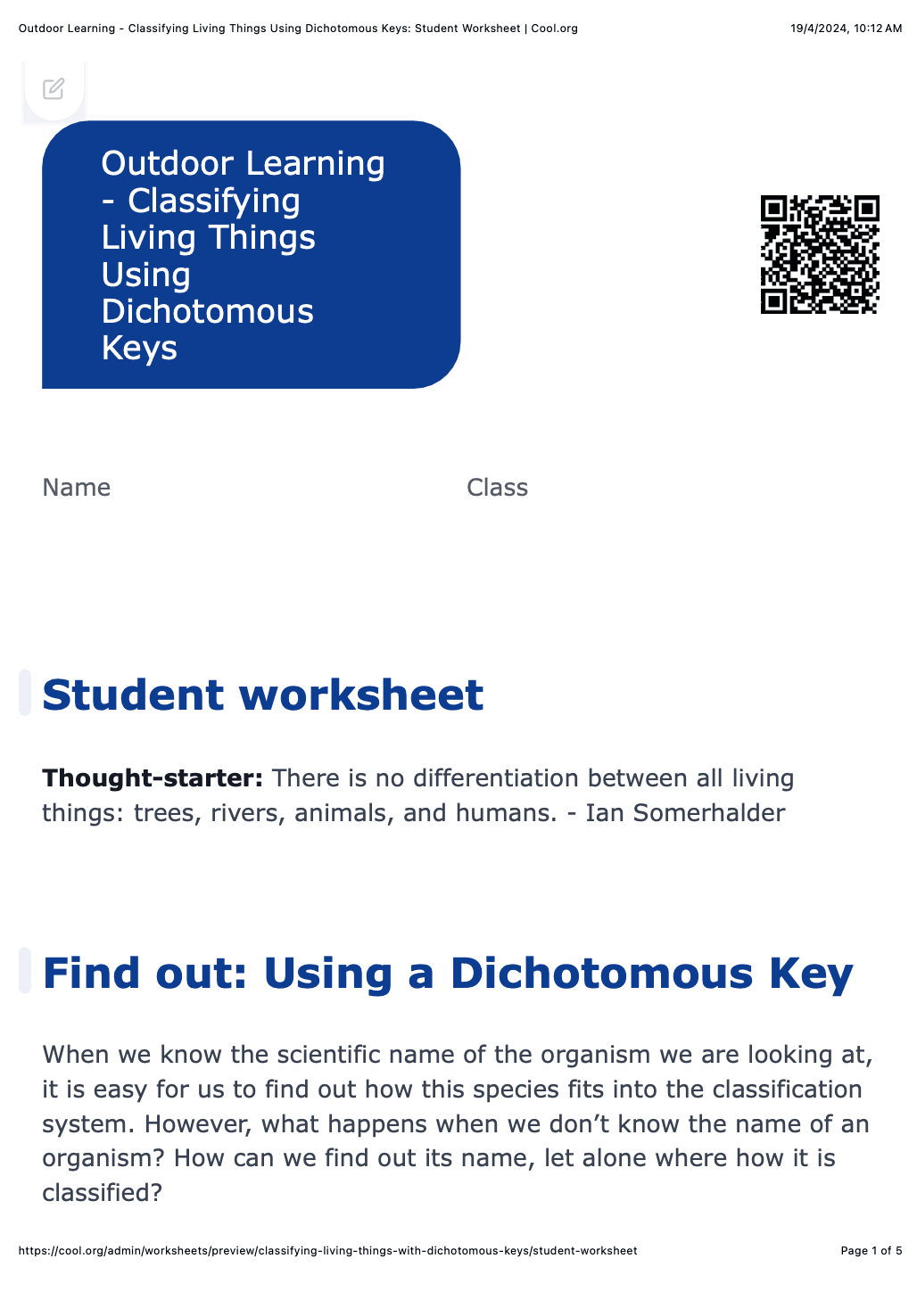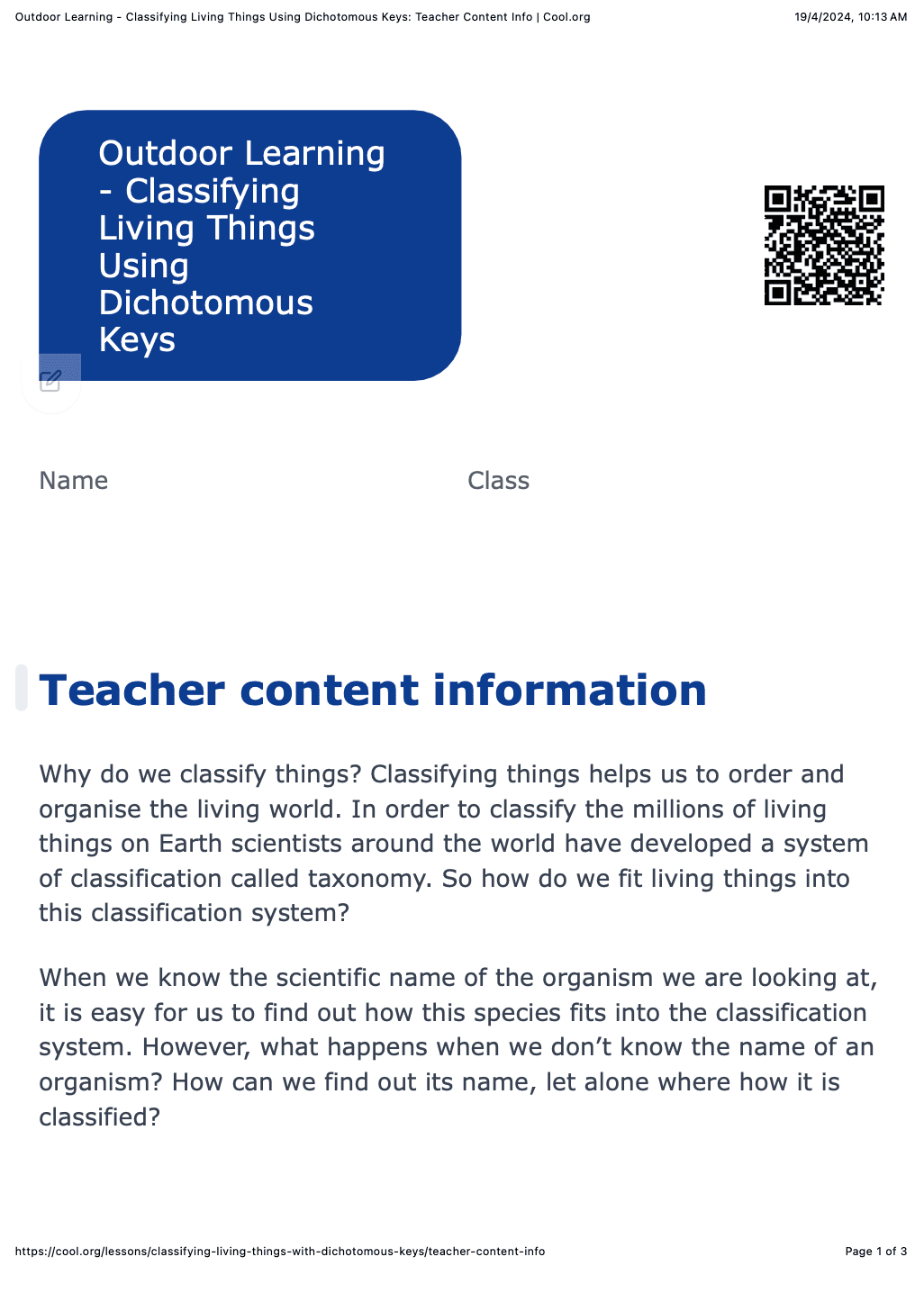
Outdoor Learning - Classifying Living Things Using Dichotomous Keys
Lesson8 of 9 in this unit
Cool+SecondaryYear 7ScienceBiologyEnvironmentalBiodiversity
Summary
Lesson Guides and Printables
Lesson Plan

Student Worksheet

Teacher Content Info


Lesson Plan

Student Worksheet

Teacher Content Info
